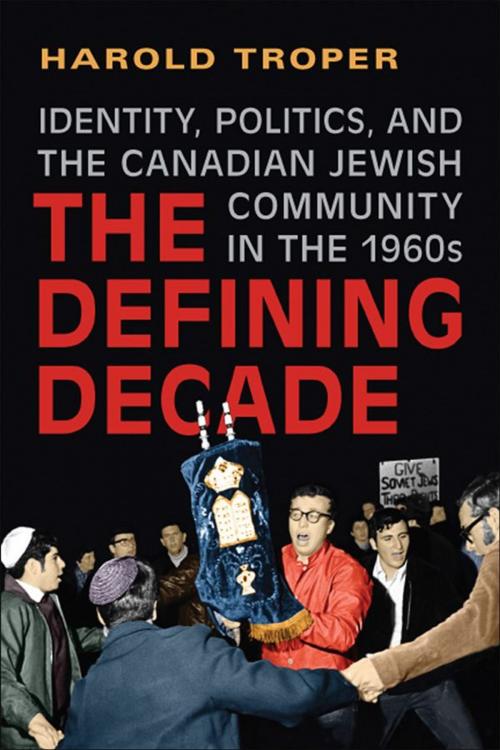The Defining Decade
Identity, Politics, and the Canadian Jewish Community in the 1960s
Nonfiction, History, Canada, Religion & Spirituality, Reference, Jewish| Author: | Harold Troper | ISBN: | 9781442660427 |
| Publisher: | University of Toronto Press, Scholarly Publishing Division | Publication: | September 17, 2010 |
| Imprint: | Language: | English |
| Author: | Harold Troper |
| ISBN: | 9781442660427 |
| Publisher: | University of Toronto Press, Scholarly Publishing Division |
| Publication: | September 17, 2010 |
| Imprint: | |
| Language: | English |
The 1960s witnessed a radical transformation in the Canadian Jewish community. The erosion of longstanding barriers of anti-Semitism resulted in increased access for Jews to the economic, political, and social Canadian mainstream. Arguing paradoxically that even as Canada became more accepting, Canadian Jews became more focused on Jewish identity, The Defining Decade examines how the 1960s redefined what it meant to be a Canadian Jew and a Jewish Canadian.
Domestic events such as the Quiet Revolution, the eruption of Neo-Nazi activity, the election of Pierre Elliot Trudeau, and the promise of multiculturalism combined with international affairs such as the Six Day War, Arab rejectionism with regards to Israel, and the explosion of Soviet Jewish activisim to radically reshape Canadian Jewish priorities. In tracing the rapid changes of this tumultuous decade, Harold Troper draws upon a wealth of historical documentation, including more than eighty interviews, to demonstrate that the expression of Canadian Jewishness was an increasingly public - and political - commitment.
The 1960s witnessed a radical transformation in the Canadian Jewish community. The erosion of longstanding barriers of anti-Semitism resulted in increased access for Jews to the economic, political, and social Canadian mainstream. Arguing paradoxically that even as Canada became more accepting, Canadian Jews became more focused on Jewish identity, The Defining Decade examines how the 1960s redefined what it meant to be a Canadian Jew and a Jewish Canadian.
Domestic events such as the Quiet Revolution, the eruption of Neo-Nazi activity, the election of Pierre Elliot Trudeau, and the promise of multiculturalism combined with international affairs such as the Six Day War, Arab rejectionism with regards to Israel, and the explosion of Soviet Jewish activisim to radically reshape Canadian Jewish priorities. In tracing the rapid changes of this tumultuous decade, Harold Troper draws upon a wealth of historical documentation, including more than eighty interviews, to demonstrate that the expression of Canadian Jewishness was an increasingly public - and political - commitment.















